The Constitution Change Controversy: A Nation Divided on the Crossroads
Associated Articles: The Constitution Change Controversy: A Nation Divided on the Crossroads
Introduction
With nice pleasure, we are going to discover the intriguing matter associated to The Constitution Change Controversy: A Nation Divided on the Crossroads. Let’s weave fascinating info and provide contemporary views to the readers.
Desk of Content material
The Constitution Change Controversy: A Nation Divided on the Crossroads
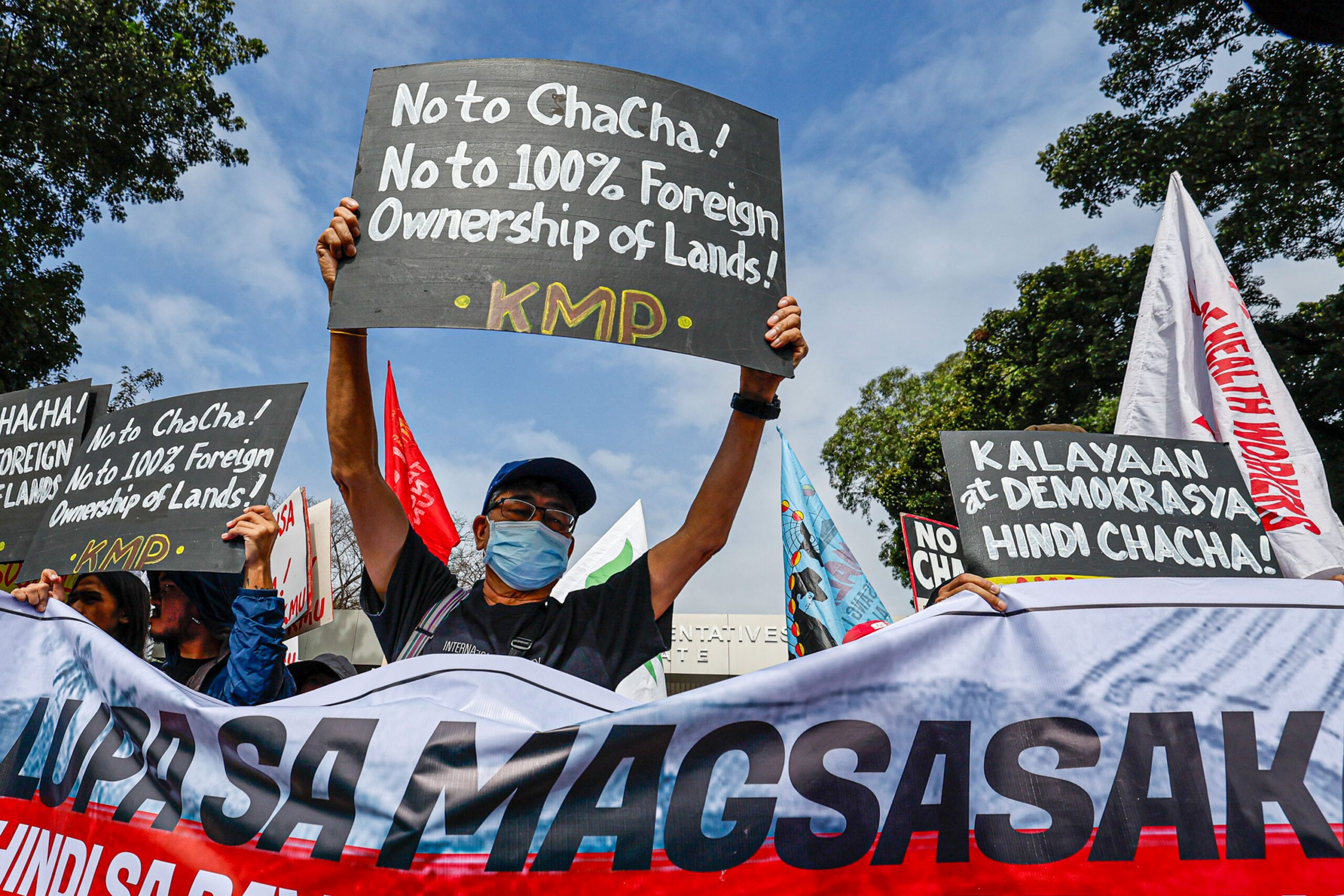
Constitution change, or Cha-cha because it’s colloquially recognized within the Philippines, refers back to the strategy of amending or revising the 1987 Structure. This seemingly procedural matter has turn into a perennial supply of intense political debate, sparking fierce disagreements and dividing the nation alongside ideological, partisan, and even private strains. The controversy stems not solely from the complexities of constitutional revision itself but additionally from the deep-seated anxieties and conflicting visions it evokes concerning the way forward for the Philippines.
The 1987 Structure, drafted within the aftermath of the Marcos dictatorship, was designed to forestall a recurrence of authoritarian rule. It established a system of checks and balances, enshrined elementary rights, and decentralized energy. Nonetheless, over the a long time, requires constitution change have emerged from varied quarters, every with their very own justifications and proposed amendments. These justifications usually revolve round perceived shortcomings of the present framework, starting from financial stagnation to perceived inefficiencies in governance.
Arguments for Constitution Change:
Proponents of constitution change usually level to financial limitations as a main driver for his or her advocacy. They argue that the present structure’s restrictive provisions on overseas possession restrict overseas funding and hinder financial development. The 60-40 possession rule in sure industries, for instance, is cited as a deterrent to attracting much-needed capital and know-how. They suggest amendments to loosen up these restrictions, permitting for larger overseas participation in key sectors and doubtlessly boosting financial improvement.
One other frequent argument facilities on the necessity for larger effectivity in governance. Some advocate for a shift from the present presidential system to a parliamentary system, believing it could result in larger political stability and quicker decision-making. Supporters of this view usually level to the frequent gridlock and political infighting that characterize the Philippine political panorama, arguing {that a} parliamentary system might mitigate these points. Moreover, they counsel {that a} parliamentary system may foster larger collaboration between the chief and legislative branches, resulting in simpler coverage implementation.
Past financial and governance issues, some proponents argue for constitution change to deal with particular social points. As an example, amendments could be proposed to strengthen the safety of indigenous rights, improve environmental safeguards, or enhance the justice system. These arguments usually spotlight the necessity for the structure to adapt to evolving societal wants and values.
Arguments in opposition to Constitution Change:
Opponents of constitution change specific deep issues concerning the potential for abuse of energy and the erosion of democratic establishments. They argue that amending the structure is a fragile course of that requires cautious consideration and broad public consensus. They concern that unexpectedly carried out modifications might undermine the basic rules enshrined within the 1987 Structure, doubtlessly opening the door to authoritarianism or undermining the checks and balances designed to guard residents’ rights.
A major concern revolves across the potential for self-serving motives behind requires constitution change. Critics usually suspect that highly effective political figures are utilizing the discourse as a way to increase their phrases in workplace or consolidate their energy. The opportunity of lifting time period limits, as an illustration, has fueled intense opposition, with critics arguing it represents a transparent try to avoid democratic norms and perpetuate the rule of a choose few.
Moreover, opponents spotlight the shortage of enough public consciousness and understanding of the complexities of constitutional revision. They argue that the talk is usually dominated by elites and particular pursuits, leaving the common citizen uninformed and unable to take part meaningfully within the course of. This lack of public engagement, they contend, undermines the legitimacy of any proposed modifications.
The method of amending the structure itself is fraught with challenges. The 1987 Structure outlines two main strategies: constituent meeting and constitutional conference. A constituent meeting entails Congress itself appearing as a constitutional conference, whereas a constitutional conference requires the election of delegates particularly tasked with revising the structure. Each strategies have their very own complexities and potential pitfalls, resulting in additional debate and controversy.
The Function of Political Actors:
Political actors, from the President to senators and congressmen, play a big position in shaping the constitution change debate. Their positions, usually influenced by partisan pursuits and private ambitions, considerably impression public notion and the trajectory of the dialogue. The alignment of political forces can decide whether or not constitution change positive factors momentum or stays stalled. Moreover, the rhetoric employed by political leaders usually fuels the controversy, additional polarizing public opinion.
The Media’s Affect:
The media performs a vital position in shaping public understanding of constitution change. The way in which the problem is framed, the voices which might be amplified, and the extent of scrutiny given to proposed amendments all affect public notion. Accountable journalism is essential in making certain that the talk is knowledgeable and that the general public is supplied to make knowledgeable selections. Nonetheless, the potential for biased reporting or the amplification of misinformation stays a priority.
The Public’s Function:
In the end, the success or failure of any constitution change initiative rests on the knowledgeable consent of the Filipino folks. Public consciousness, engagement, and participation are important for a official and significant course of. Nonetheless, the complexities of constitutional legislation and the often-polarized nature of the talk could make it difficult for residents to totally perceive the implications of proposed modifications. Educating the general public and fostering knowledgeable discussions are essential for making certain that any amendments replicate the real will of the folks.
Conclusion:
The constitution change controversy within the Philippines is a multifaceted challenge deeply rooted within the nation’s historical past and political panorama. It displays a elementary wrestle between the need for progress and the concern of jeopardizing hard-won democratic positive factors. The controversy necessitates a cautious balancing act between addressing perceived shortcomings within the present constitutional framework and safeguarding the basic rights and democratic establishments which might be important for a simply and affluent society. Shifting ahead, a clear, inclusive, and well-informed public discourse is crucial to make sure that any modifications to the structure are official, useful, and serve one of the best pursuits of the Filipino folks. This requires not simply political will, but additionally a dedication to civic engagement and a shared understanding of the profound implications of altering the very basis of the nation’s governance.
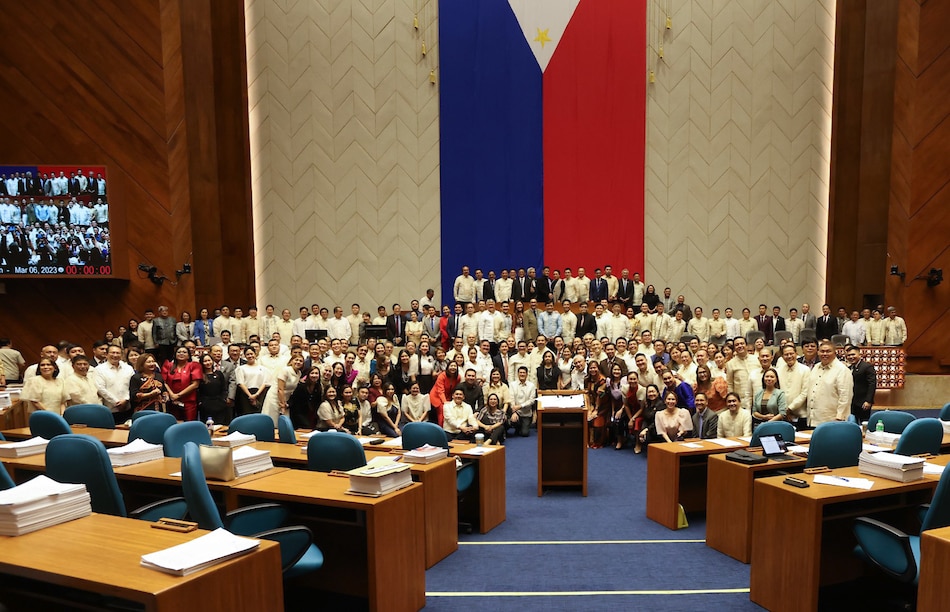
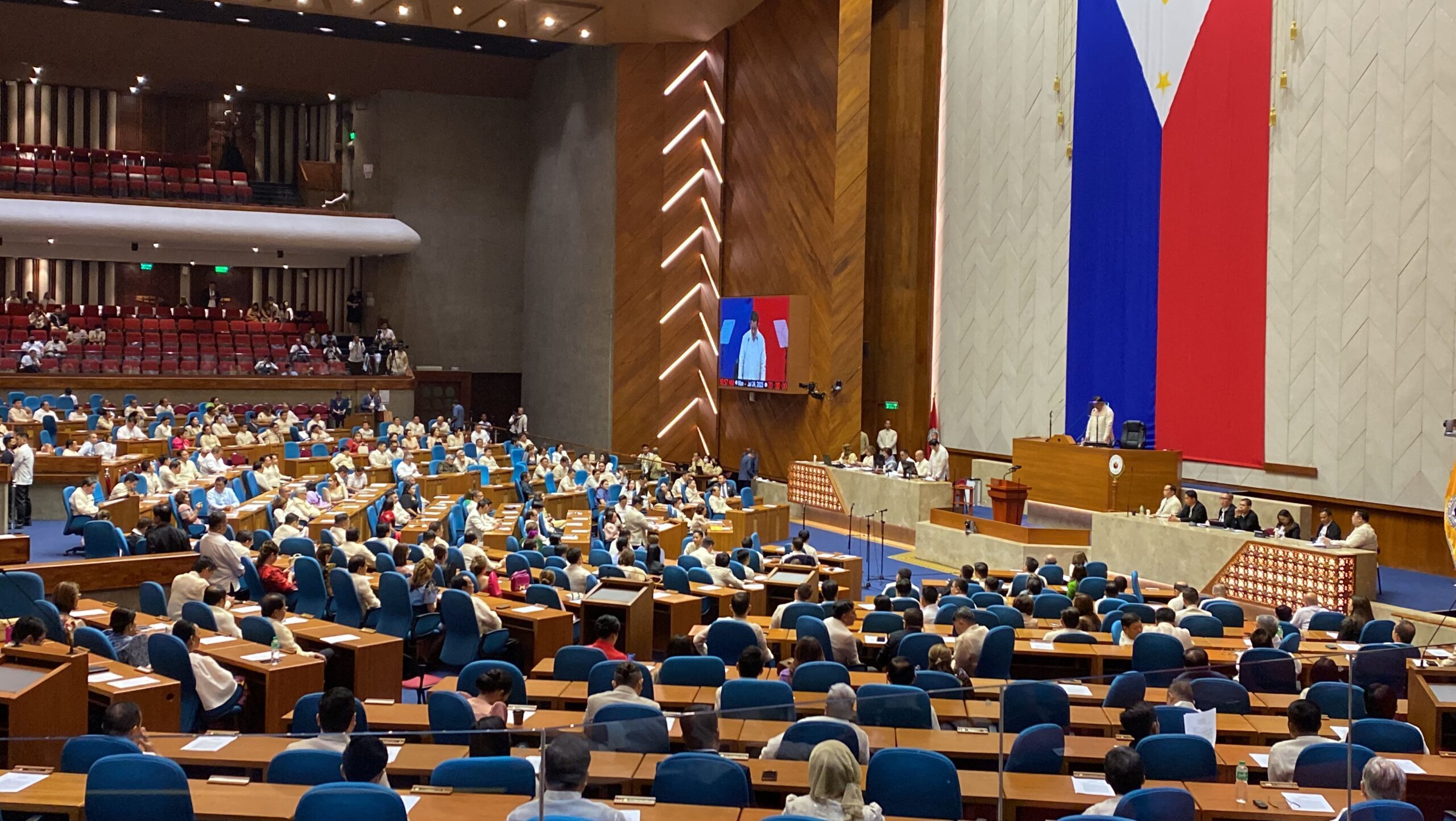
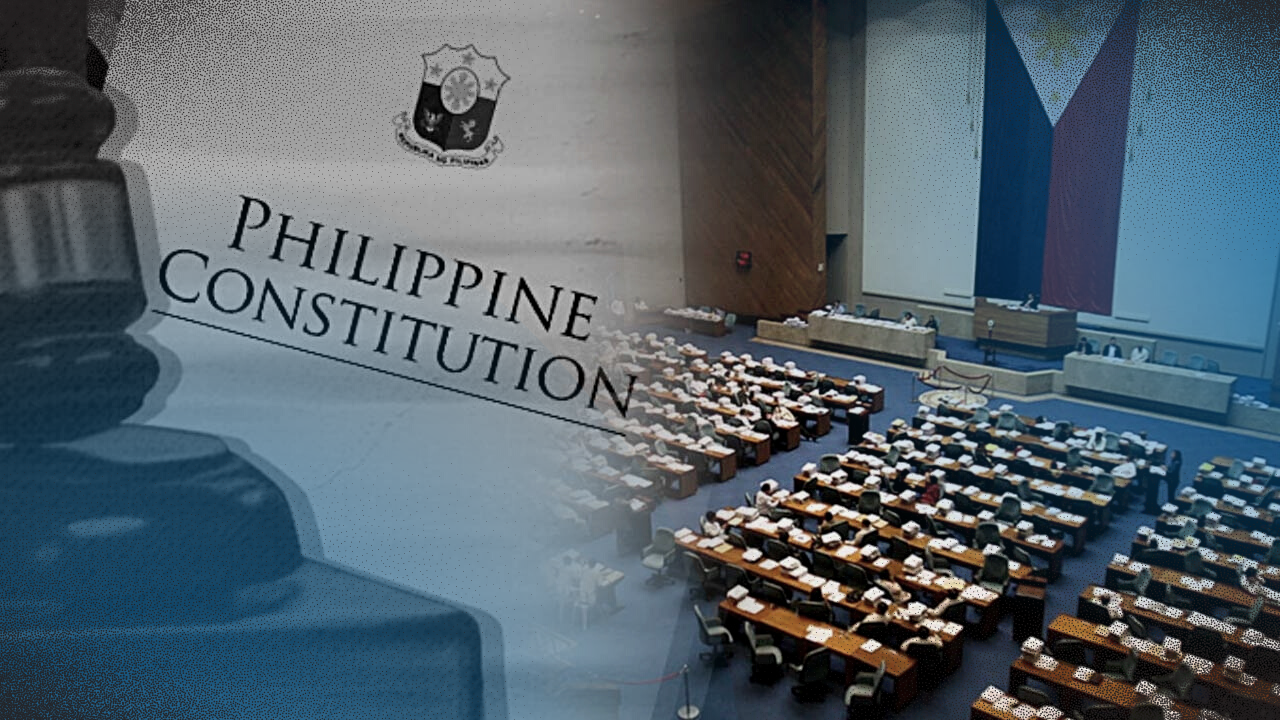
![[OPINION] Here we go again with charter change](https://www.rappler.com/tachyon/2023/03/TL-chacha.jpg)
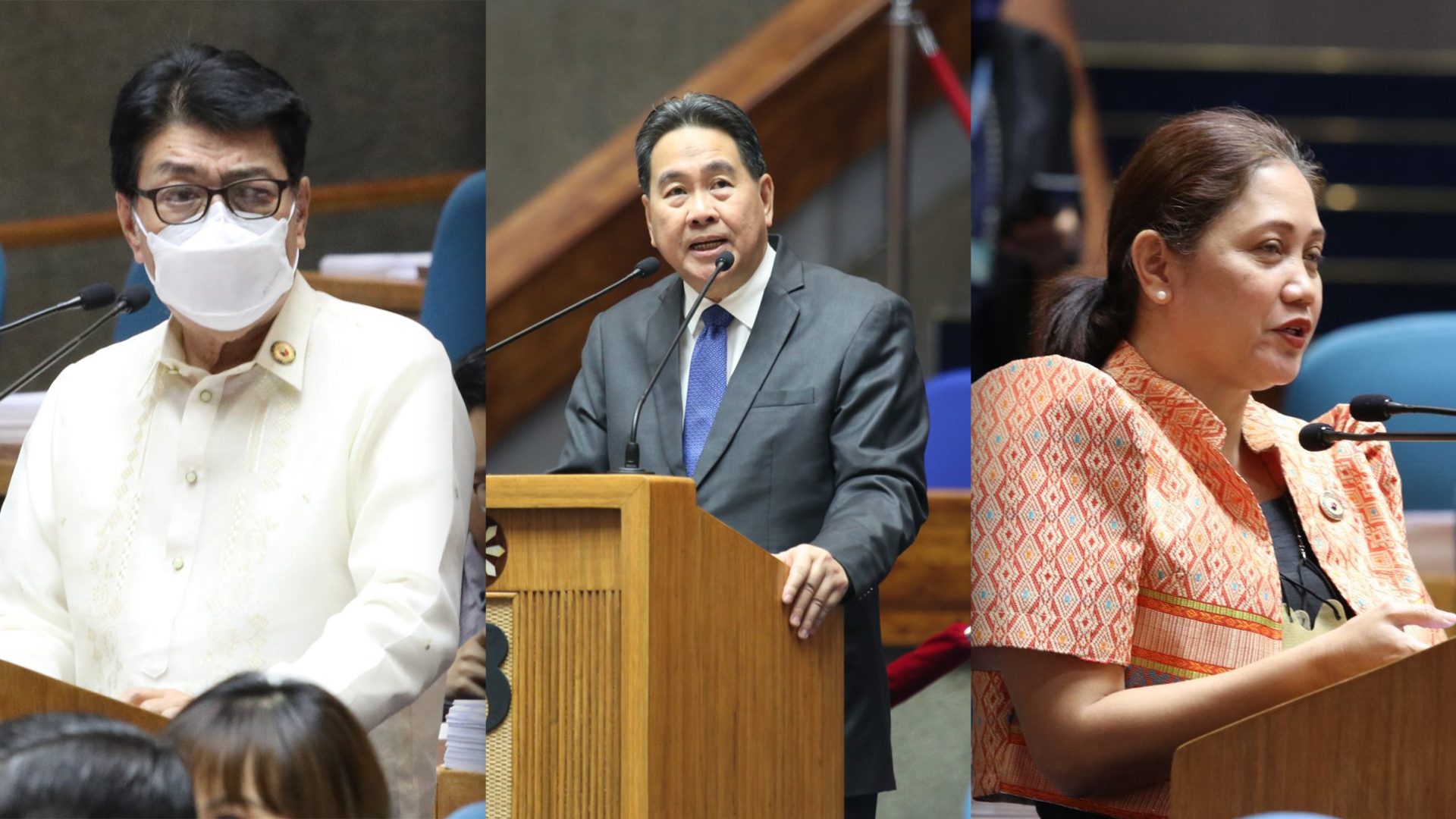
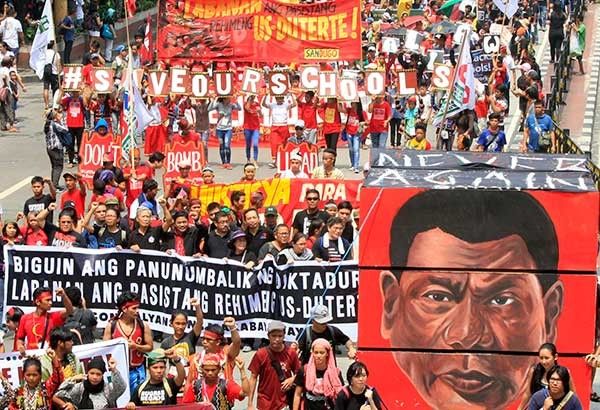
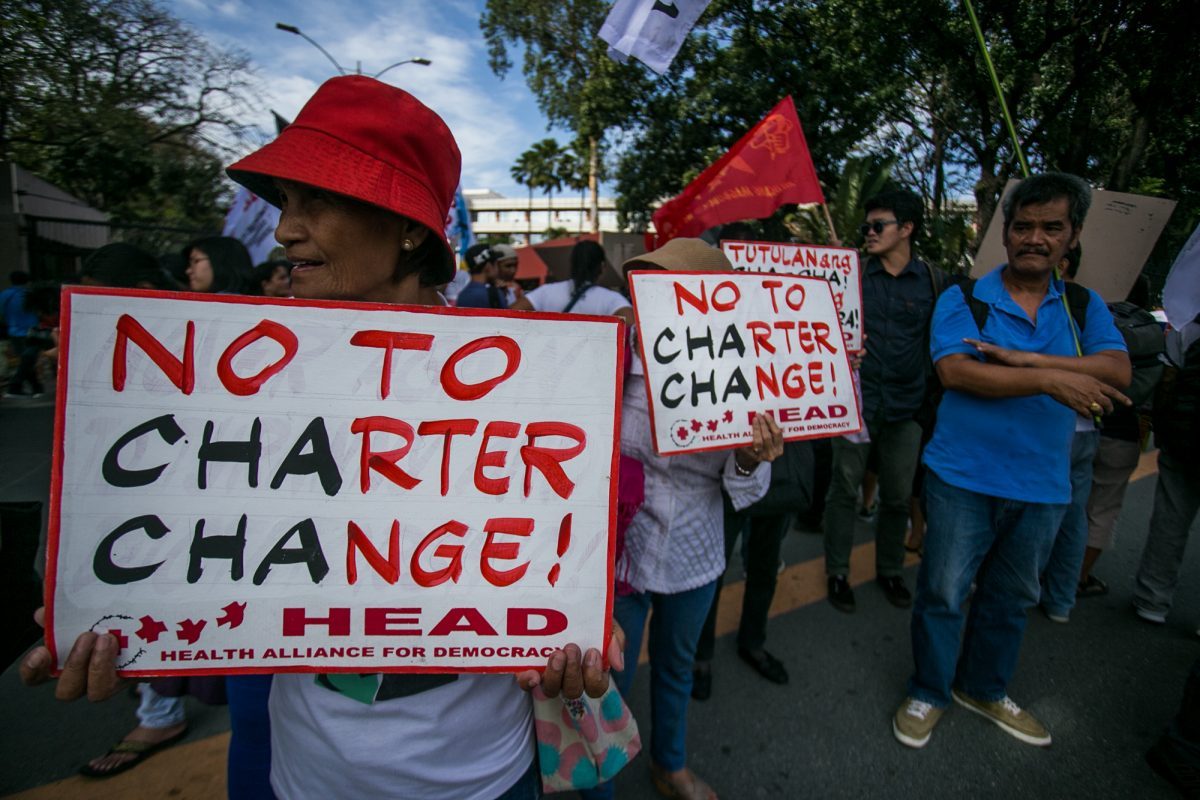
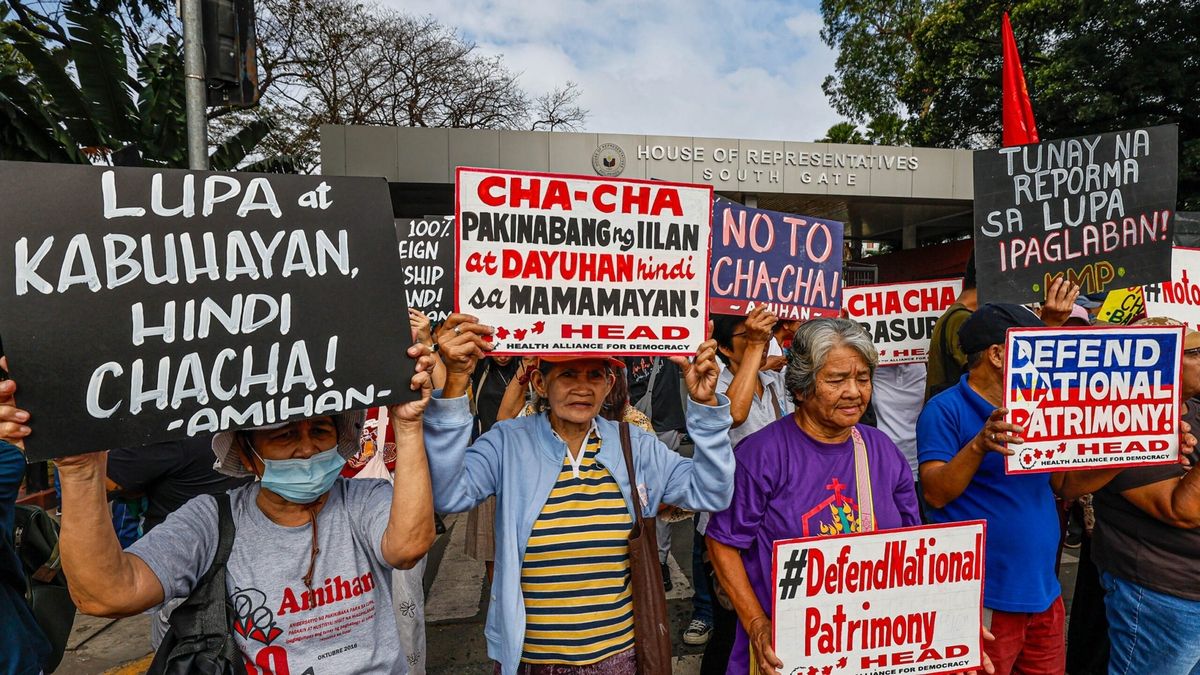
Closure
Thus, we hope this text has offered beneficial insights into The Constitution Change Controversy: A Nation Divided on the Crossroads. We hope you discover this text informative and useful. See you in our subsequent article!